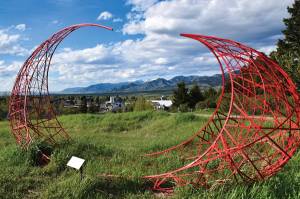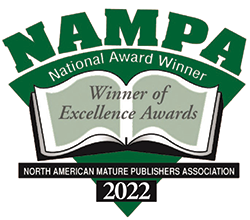By Gladys Considine
At a recent family reunion, I sat with four generations of Montanans. We ate a typical picnic spread. The thing which brought these four generations here, this day, was our Montana roots.
In some parts of the country, if you tell someone new you live in Montana, you might get a look that says, “You poor thing.” Those who respond this way assume we all still live in two-room log homes with outdoor privies and drive 4-wheel off-road pickup trucks with loaded rifles hung in the back window, and we are barely educated enough to read the county newspaper, let alone The New Yorker.
Others react by asking, “How many cows…horses…sheep do you have?” And
“How many acres do you own?” or “How large is your ranch? ”Others, perhaps a little more informed, ask “Where is your favorite fly-fishing stream?” Or “How many deer have you shot?” Or “What do you DO there if you don’t farm and ranch and fish and hunt?”
During a few years of living on the East Coast, I heard all these questions and more. There is a certain cache attached to saying you are from Montana, but not much real knowledge of whom we really are.
I sat with these generations, enjoying my hot dogs and all the fixin’s, home-made potato salad and huckleberry crisp and looked at who we are.
The eldest was raised on a remote ranch in southeastern Montana and homeschooled long before it was called that. He is the last cousin of his generation. A Montana State educated mathematician, he worked as an engineer and proposal manager for the Boeing Aerospace Company for 35 years, bringing his leather pilot’s jacket reward and a nice pension back home to retire in Montana. Educated to attend to detail, he searches genealogical records for unknown personal histories for relatives and friends.
The Boeing wife, starting from one of those two-room log houses on a remote sheep ranch, is a Home Economist, teacher, community activist and educator who ended her paying jobs as lobbyist for an aging organization in Washington, DC. She recently volunteered for the Governor’s Advisory Council on Aging, Conferences on Aging and the Lifelong Learning Institution (MOLLI) at the University.
The next gray haired man was a truck driver. He drove logging trucks from National Forests to sawmills across the middle of the state before taking on cross-country long hauls. He entertained the table with a tall tale, ending with a yodel. His days are filled with service to his church, gardening and being with his family.
The truck driver’s wife was a school district purchasing agent, also working in a nursing home and several banks. She, too, does genealogy research. Always active in her community, she volunteers with an organization to provide pre-packaged meals for women in poverty. She teaches them how to prepare and cook the meals.
Their oldest son is a produce merchandiser for stores in Washington and Idaho. He helps with displays and special sales and such. His favorite vacation is an annual fly-fishing visit to Lewistown.
An atypical career as a city bus driver keeps the produce manager’s wife on the streets, but out of trouble. Driving her routes every day, she has seen and heard it all. They enjoy their united families and grandchildren.
Their son manages the warehouse for Franz Bakery. Fresh oven baked goods arrive in his shipping zone in Spokane, wrapped for delivery. He directs workers who load trucks with those breads bound for distribution throughout eastern Washington, Oregon, Idaho, Wyoming, and Montana. He knows how many packages of sesame seed-covered hamburger buns will end up on shelves in Cutbank or Sheridan.
The truck driver introduces his granddaughter-in-law as “The Rodeo Queen.” She accepts his teasing. She is a horsewoman who competes with several horses and is a rodeo queen. Jeans, big belt buckle, slim shirt, lashes curled, long blond hair, dangling beaded earrings. Their relationship is based on obvious mutual respect.
A cousin, also from a ranching background, served his time as a metallurgical engineer on atomic submarines. This navy training served him well when he came back home and worked as a metallurgist for Stillwater mines. He retired to manage a Montana ranch owned by descendants of the founder.
The metallurgist’s wife from Ohio agreed, somewhat reluctantly, to take on an “adventure” in Montana, after they spent numerous years caring for her father on a beach in Florida. She sits in awe at our table as she hears stories of what “life used to be like” in Montana. MSN
The host of this reunion runs the ranch started by his father in the 1950s. Most at this table have roots in Montana ranches. But others never came close to a cow or sheep or horse. Montana people DO everything. We are high-tech scientists, and low-tech sheepherders, though we probably use an ATV and dogs for herding. We park our BMWs, Subarus and SUVs right next to the RAM truck with a loaded gun rack. Not only that, but we are policemen and those they are trying to catch. Furthermore, we are storekeepers, nurses, welders, bus drivers, electric service linemen, snowmobile repairmen, architects, carpenters, builders, teachers, ministers, radio personalities, house cleaners, doctors, airplane mechanics and pilots, lawnmowers, custodians, professors, cooks, and café owners, road builders and bridge builders, perhaps a barkeeper or two. Some of us are retired. Some of us are writers and artists. And, to be honest, some of my relatives hold these jobs and careers so that they can hang on to small three-generation ranches developed by their grandparents.
We know how to work, how to care for others, and how to love the land. Our Montana background centers us in a way that says wherever we go, we are still Montanans. It makes us who we are, regardless of what we do. Our roots run deep. We are Montana! MSN










